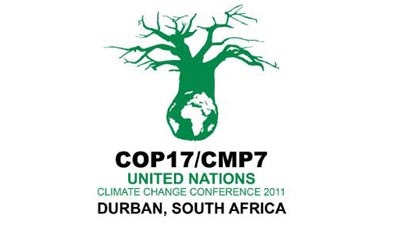Heads of government andnegotiators are locked in talks regarding commitments to the Kyoto Protocol and carbon accountability. However, those who are really in the know – the scientists, feel that negotiating platforms should pay more attention to scientific considerations. “Mitigation activities are essential to reduce the scope and scale of global warming, however an area which is not prevalent in COP17 discussions is that of anthropogenic and natural carbon emissions, which is crucial to understanding the gravity of the climate change situation.” These are the words of Dr. Pedro Monteiro, Chief Scientist at the Council for Scientific and Industrial Research (CSIR) in South Africa. Dr Monteiro and his team are conducting research on the Southern Ocean, analysingitscapacityto absorb carbon dioxide (CO2) in thecoming years if carbon emissions are not halted. He explains that anthropogenic emissions are the carbon releases resulting from human activity, and natural emissions being a bi-product of natural biodiversity processes. The Southern Ocean has been one of the earth’s most important assets to human survival as it has acted as a regulator of regional climates, storing 40% of all man-made CO2 in its interior. However, it has very large opposing natural fluxes that are sensitive to small changes in the climate, which easily match the greenhouse gas (GHG) emissions reduction targets. The pressing question then is what happens when large natural systems change; when global climate changes start to drastically affect the earth. “The earth has a way to balance itself, where the oceans absorb 2.2 gigatons of carbon and the balance is absorbed in the atmosphere. However, this does not call for a celebration, as the oceans will not carry on doing this in the coming few years, as changes in the climate are becoming drastic,” explains Monteiro. Hecites threereasons why the earth is going to be in trouble in the coming five years as a result of climate change, and why negotiating parties should ‘sign the commitment deal now’: The oceans are warming up and warm water has a lower carrying capacity ofCO2Warmer oceans mean fewer nutrients formicroscopic life forms which absorb half of the ocean’scarbon dioxide loadThe ocean’s Ph levels are decreasing, which in turn decreases their capacity to take on more carbon dioxide “If there is a small adjustment in the carbon levels, as little as three percent, the impact will be bigger. Thethree percentmight seem small, but the impact is bigger than the amount the ocean is able to take up of our emissions. Therefore we could find ourselves in a situation in the next five years where even the fastest we try to reduce emissions, the harder it becomes,” says Monteiro. “The illusion is that if we stop now, CO2 levels will drop quickly, but actually not.” Alecia Nickless, a researcher at the CSIR, has started measuring CO2 fluxes in the savannah ecosystem in the Kruger National Park in the eastern part of South Africa. “We have towers collecting data for 11 years now in the Skukuza area. We want to see how the ecosystem takes up and emits CO2 and turns it to plant material, which is essential for life,” says Nickless. Working with national transportation company, Transnet, the CSIR is looking into install more towers in a number of other areas which will help to estimate CO2 emissions that in turn can be used to model those of the whole country. Regarding South Africa’s climate action strategy, both Monteiro and Nickless suggest a rejection of the current technology used to produce electricity. “Alternative energy and as little coal as possible can ensure we bring CO2 levels down,’ says Monteiro. “The goal should be to depend on more efficient systems. The government has already decided they are building new coal stations, but we believe we should have less dependence on coal,” concludes Monteiro.
– By Nqobile Buthelezi, Reporting DNA


